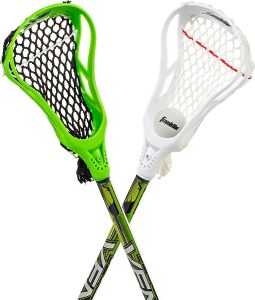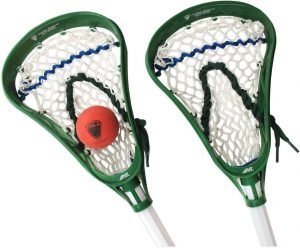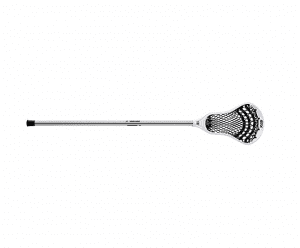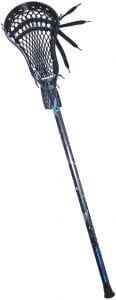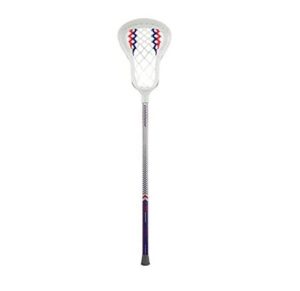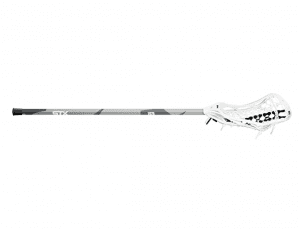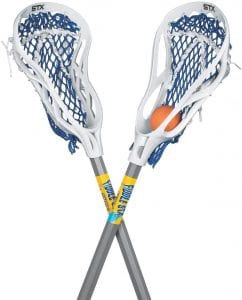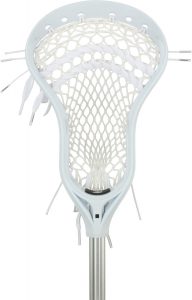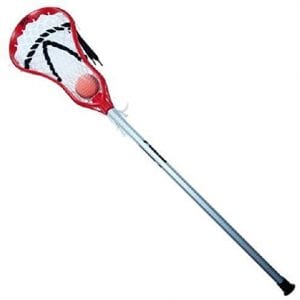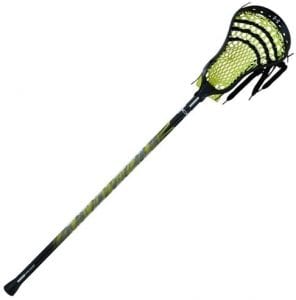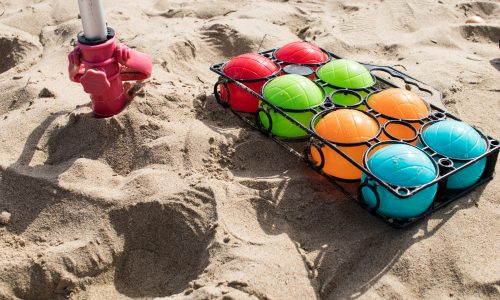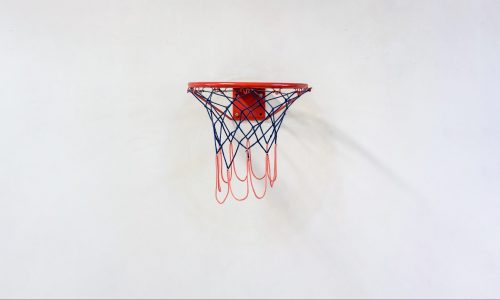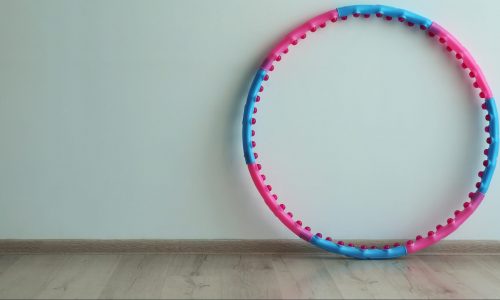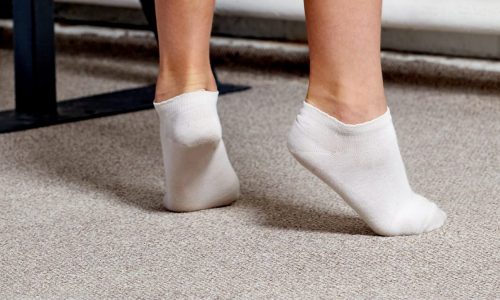The Best Lacrosse Sticks for Kids
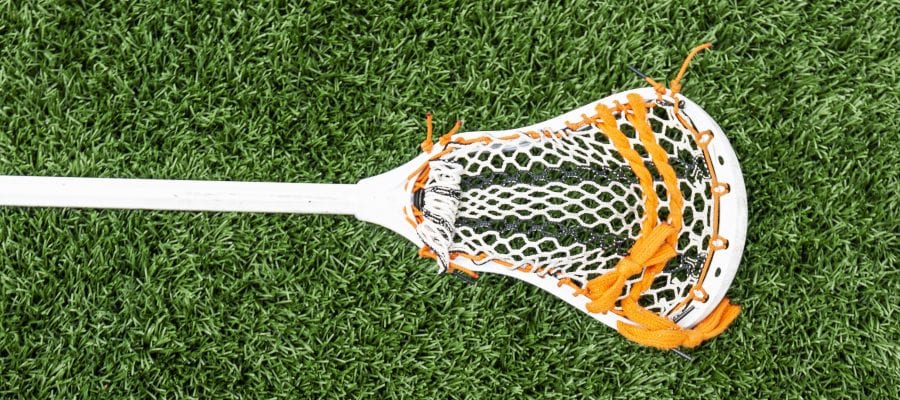
Our Review Process
Don't Waste Your Money is focused on helping you make the best purchasing decision. Our team of experts spends hundreds of hours analyzing, testing, and researching products so you don't have to. Learn more.
Our Picks For The Top Kids' Lacrosse Sticks
- 1. Franklin Sports Beginner Lightweight Boys’ Lacrosse Sticks, Set Of 3
- 2. A&R Sports Official Supplier Mini Boys’ Lacrosse Sticks, Set Of 3
- 3. STX Stallion 50 Molded Head Complete Boys’ Lacrosse Stick
- 4. CAKLOR Professional Mesh Boys’ Lacrosse Stick
- 5. WARRIOR EVO Compact Boys’ Lacrosse Stick
- 6. STX Lacrosse Fortress 300 Girls Complete Stick
- 7. STX FiddleSTX Mini Lacrosse Sticks With Ball, 2-Pack
- 8. StringKing Short Shaft Boys’ Lacrosse Stick
- 9. STX Sporting Compact Boys’ Lacrosse Stick
- 10. Under Armour NexGen Junior Complete Lacrosse Stick
With this boys' lacrosse stick set, you'll receive two practice sticks and a lacrosse ball. Players new to the sport will find the sticks easy to hold and operate, thanks to the thinner shaft and overall lightweight design. The deeper pocket is also a plus for newbies as they learn to catch and throw the ball.
Economical OptionWhen sticking to a budget, this boys' lacrosse stick set is an affordable pick that won't break the bank.
When you go with this high-end boys' lacrosse stick set, you receive two 30-inch sticks that are designed to help you learn the game. Each is constructed using a large head with a mesh pocket to make catching and throwing the ball easier. The set can be used indoors or outdoors and comes with a rubber ball to get you started.
A Step UpAlthough the shaft on this boys' lacrosse stick is made from plastic, it has a chrome-looking finish.
The ergonomic design of this boys' lacrosse stick keeps players comfortable, allowing them to stay focused on playing. The handle is shorter and thinner to provide more control. The softer material of the head provides more give, which some lacrosse players find makes playing easier.
Ergonomic HandleThis handle is built for comfort, reducing wear for players who have long practice sessions to hone their skills.
The professionally-strung mesh in this boys' lacrosse stick is made from premium material for long-lasting, reliable use. You can adjust the mesh to customize the head to fit your own preferences. The lightweight stick makes this a great starter stick for those who are brand new to lacrosse.
Premium MeshYou'll get plenty of reliable use out of this stick, which has a mesh head made from top-quality material.
Buying Guide
As the fastest-growing high school sport, lacrosse appeals to aspiring athletes of all ages. If your child is thinking about getting started in lacrosse, you’ll need some basic equipment, including protective gear like a helmet and shoulder pads.
But the most crucial item you’ll buy for your younger athlete is the lacrosse stick. This will be the tool your player uses to catch the ball and toss it into the goal. While a player will hone his skills over time, the right stick can make a big difference. There are several factors to consider when you’re choosing a lacrosse stick.
First, it’s important to know that the type of stick varies from one position to another. An offensive player will use a shorter stick (40 to 42 inches), while defensive players need a longer one (up to 72 inches). For goalies, the length of the stick doesn’t matter as much as the size of the head. A goalie’s stick will have a wider head than those of other players.
The head of the lacrosse stick is worth noting, as well. While the head may vary in width, they all have mesh designed to catch the ball. This mesh varies in tightness and softness, but some find that a mesh that has more “give,” which makes it easier to catch the ball.
For younger players or beginners, a lighter, shorter stick will typically be better. These players need to get more comfortable maneuvering the ball on the field, and this can be a great way to practice. Once your young athlete joins a team, though, regulations may dictate that the stick be a certain length. Either way, youth lacrosse players will typically graduate to a longer stick as they grow.
Some lacrosse sticks feature a textured handle to make grip easier. This can be a great way to keep the head exactly at the angle you want during intense gameplay. Lacrosse sticks come in a variety of builds, and players tend to prefer one over others. You’ll find sticks made of titanium, scandium, alloys or carbon fiber composite. Aluminum is more lightweight, while composite shafts don’t tend to absorb the temperature as much, which comes in handy if you’re playing in extremely cold or hot conditions.
There are some regulations to keep in mind if your player is joining a team. Look for a NFHS head for youth lacrosse. NCAA heads are for NCAA play only. The side portion of the head can’t be more than 2 inches tall and the pocket of the stick must pass the ball test. You’ll have to be able to put the ball in the pocket without the top edge overshooting the lowermost edge of the sidewall.
What to Look For
- Lacrosse is a fun game to play, but there is a learning curve. For best results, get your young player a stick as early as possible, and practice throwing against a wall repeatedly to get comfortable with catching and throwing.
- The length and circumference of the stick play an integral role in how much control the player has on the field. Shorter, thinner sticks tend to offer greater control.
- Standards are essential in team sports. Whether your player is joining a youth team or a high school team, or playing in another organized environment, research the standards to make sure you buy the right stick on the first try.
- Although a deep pocket can make it easier to catch the ball, if the pocket is too deep, you could find it tougher to control things. The good news is, many pockets can be adjusted to fit your own preferences. Players who tend to pass the ball over farther distances generally find that a shallower pocket gives more of a boost.
- You don’t have to rely on the pocket that comes with your stick. In fact, often a professionally restrung head will give you much better results. Your coach will probably inspect your strings at the start of the season and require you to restring the heads if they aren’t up to par. Check with your coach or other parents for recommendations on a restringing service in your area.
- For new players, a more lightweight stick may be easier to control.
- There are shorter sticks that are designed specifically for the youngest players. Look for one that is a scaled-down version of the sticks used by older players.
- Many pockets need to be broken in before official practices and games. This simply requires throwing a few times, adjusting the strings, then throwing again until you find the control level you like.
- Not all lacrosse players want a game-quality lacrosse stick. You may just want one for throwing the ball back and forth in the backyard. You can find more recreational sticks, which usually include a ball in the package.
- In the early days, a stick with a wider head can make it easier to master the basics. You can then graduate to one with a narrower head as your skills improve.
- Lacrosse season kicks off in the cold winter months, with practice usually starting up in January. Since signups often take place in the fall, consider buying your stick then. As the calendar year draws to a close, it may be more difficult to find the stick you want.
More to Explore
In addition to being the fastest-growing high school sport, lacrosse has often been praised for its speed. In fact, it has earned the nickname, “the fastest game on two feet.” Once they get going, players often find they can toss the ball at a velocity not seen in any other sport. The world record for lacrosse ball speed was set in 2015, when Patrick Luehrsen’s speed was recorded at 119.9 mph. Luehrsen is perhaps best known as the creator of a lacrosse stick called “The Ghost,” which features a clear shaft and boasts extra flexibility without sacrificing durability. The Ghost is designed for fun and practice, not for regulation gameplay.

